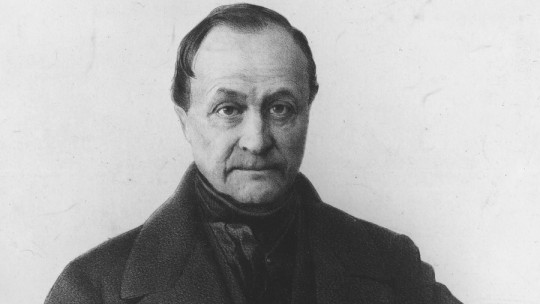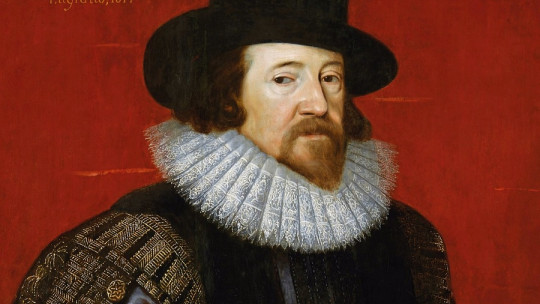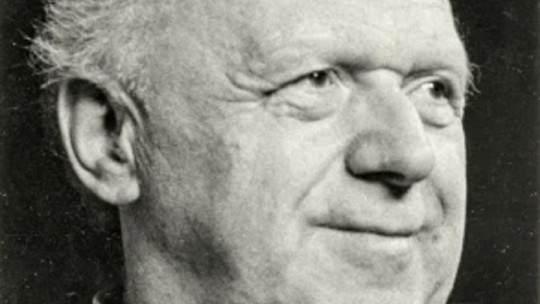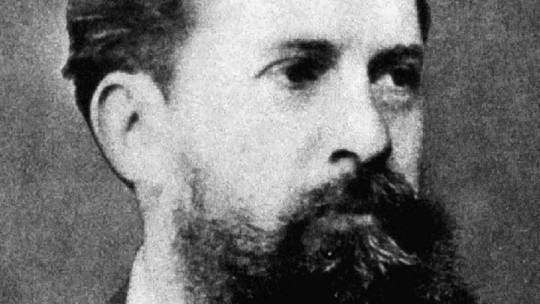
Talking about science is talking about research, the search for knowledge through experimentation and validation of hypotheses and verifiable theories at an empirical level. Regardless of how we say it, what is clear is that knowledge is only considered scientific if it can be proven objectively
Now, this idea of science has not emerged from nowhere: throughout history a large number of authors have debated and defended various models of knowledge based on philosophy and epistemology, some of which are opposite or mutually exclusive.
One of these models is Auguste Comte’s Positivism, one of the main philosophical currents that advocate that authentic and true knowledge can only be obtained through the verification of hypotheses through the scientific method. This movement has largely marked the intellectual development of an era, which is why knowing its main creator. It is because of that Throughout this article we are going to do a short biography of Auguste Comte with its main contributions to the intellectual development of the West.
Brief biography of Auguste Comte
Auguste Comte was born on January 19, 1798 in Montpellier, France, in the final years of the French Revolution. Born Isidore Marie Auguste François Xavier Comte, he was one of three children of the civil servant Louis Auguste Xavier Comte and Félicité Rosalie Comte. His family was of modest origin, with strong Catholic beliefs and defenders of the monarchy.
During his first years of life, Comte was educated in the Catholic religion, and he attended a school in his hometown. Around fourteen years of age the young man decided to declare himself an agnostic and republican. Highly intelligent and gifted with a great memory capacity, his grades were high but he stood out for his great rebellion.
Training
In 1814, when the young man was sixteen years old, he was accepted into the Polytechnic School of Paris. At this center he would begin to be interested in science and engineering subjects promoted for the training of new technicians for the benefit of the State, and would come into contact for the first time with the ideas of Count Claude Henri Saint-Simon.
All of this led him to believe in the need to generate a society governed by scientists. However, two years later the government decided to close the institution, due to its republican ideology.
The closure of said school caused Comte to return to Montpellier, where he would begin studying medicine at the university while surviving by teaching mathematics. However Shortly afterward he decided to return to Paris and settle there, studying self-taught Academically he was an outstanding student, but he did not obtain any qualifications, something that would later make it difficult for him to access different positions.
In Paris he met Saint-Simon in person and managed to become his secretary in 1817. He would remain with him until 1824, a period in which he obtained a large amount of learning from his mentor, although he would end up separating from him due to disagreements about what should be done to remodel society.
The separation occurred after the publication of the Scientific work plan necessary to reorganize the society (“Plan of the scientific work necessary to reorganize society”, a work in which the nature of positivism and its connection with politics would begin to be observed) by Comte, with whom his mentor did not agree, and due to Saint-Simon’s lack of appreciation of his ideas.
Precariousness and crisis
A year later, in 1825, Auguste Comte married Anne Calorine Massin For a few years the couple suffered great economic precariousness, which forced Comte to organize positive philosophy courses at high speed and almost without being able to sleep in order to survive.
He began to give lessons at home, lessons in which he would have as students some highly renowned scientific personalities of the time. These lessons dealt with positive philosophy, being collected over time in the Cours de philosophie positive which would culminate in six volumes in 1840.
The author’s great mental exhaustion led him to suffer nervous breakdowns for the first time, so serious that he had to cancel his courses and they led him to a state of high irascibility and messianic-type delusions. Although his mental problems were initially addressed by his wife, they became increasingly worse.
After that, he was admitted to Saint-Denis and was diagnosed as a “megalomaniac maniac.” something that could correspond to a manic episode or even a psychotic break.
His confinement lasted a year, until December 1826, when his mother’s intervention allowed him to leave the center even though he was not considered cured. However, shortly after (in 1827) the author jumped from the Pont des Arts into the Seine River with the intention of taking his life, something that was prevented by a guard.
The beginning of positivism
In 1828, somewhat more recovered, Comte resumed the lessons at home, at the same time that he began to compile and prepare the different volumes of his “Positive Philosophy Course”, which would end as we have already said in 1840, and in which he would include the three theoretical stages through which each branch of knowledge must pass (theological, metaphysical and scientific/positive). It was this book and the courses he took that sparked the rise of positivism as a current of scientific thought.
Besides, founded and worked as a professor at the Polytechnic School of the Polytechnic Association which allowed him to expand his ideas, but in which he could not become a professor and from which he ended up being expelled.
Likewise, and starting from this base and his dream of generating a society led by wise scientists, Comte sought to apply the principles of mathematics and science to social phenomena, sociology was born based on this ideal. One of the works in which he would express these beliefs is found in Système de politique positive, ou Traité de sociologie, instituant la religion de l’humanité (which would be published in 1854).
In 1842 he separated from his wife. In 1845 he met what would become his great love, Clotilde de Vaux, which initially rejected him but ended up establishing a relationship with him. A relationship that would end a year later, when the woman died. All this, together with the economic precariousness that accompanied him throughout his life, would lead him again to a state of crisis in which he needed the financial support of admirers like Stuart Mill.
Final years, death and legacy
Towards the end of his life There was a shift in Comte’s thinking towards religion producing works in which he linked positivism with religious sentiment and the creation of a personal god and trying to promote a new religion in which society would be governed by sociologists.
He also began to write and finished one of the volumes of Synthèse subjective ou Système universel des conceptions propres à l’état normal de l’Humanitéin which he sought to link mathematics and religion.
Auguste Comte He died on September 5, 1857, in the city of Paris, at the age of 59 as a consequence of cancer of stomach origin.
Despite the great difficulties he had throughout his life, Comte’s work has left a legacy of great importance worldwide, since from him sociology and other currents have been developed that have been born either based on the ideals of positivism or opposing these.
Criticisms of Compte’s thought
Compte’s positivism has received much criticism over the years, especially in the last decades of the 20th century, with the emergence of postmodern thought. The idea that true knowledge is practically inseparable from the hard sciences has been seen as a sample of reductionism which, in fact, is anti-scientific, as it is based on the idea that the world works by adjusting to human epistemology.
On the other hand, those who point out that philosophical positions regarding science imply a political position They often argue that Compte’s ideology was reactionary, positioning itself in favor of an individualistic vision of the generation of knowledge and access to the truth.
However, it cannot be denied that the ideas of this thinker continue to be very influential today and that they contributed strength to the idea that there are areas of knowledge in which knowledge is more based than in others.








